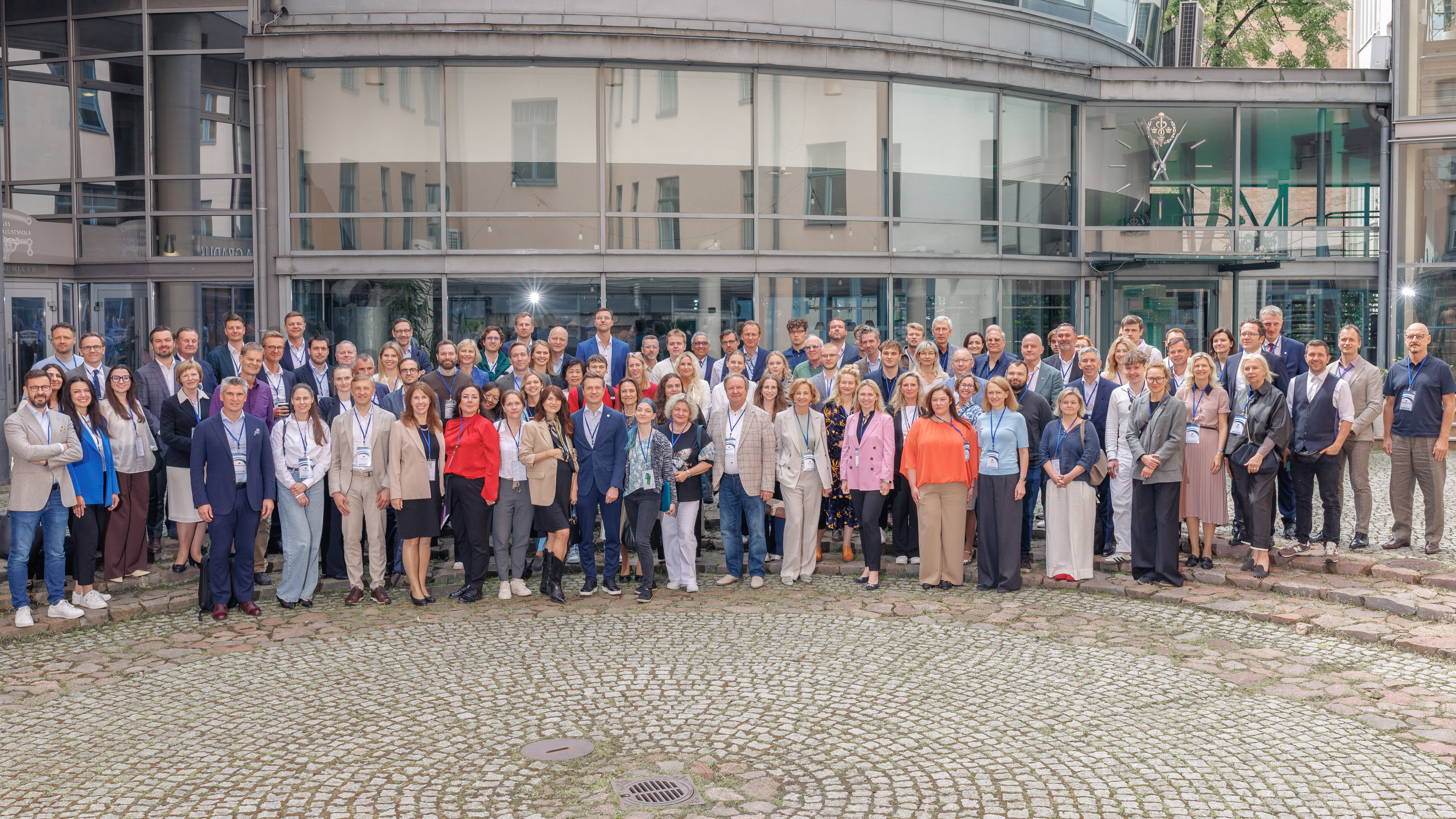SSE Riga hosts international conference on family business empowerment
On June 9 and 10, SSE Riga hosted the international conference “Empowering Family Enterprise: Professionalisation and Community Impact”, bringing together 160 participants from 20 countries – family business leaders, industry experts, and academics. The participants discussed key challenges and development opportunities for family businesses in the Baltic region.

The conference was organised by the Baltic Family Firm Institute (BFFI), which is building a supportive ecosystem for family businesses in the region, and the European Corporate Governance Institute (ECGI).
Several important challenges faced by family businesses were highlighted at the conference. Among the most frequently mentioned was succession planning – the need for timely and clear transition strategies, often complicated by differing interests and perspectives. Access to financing was also noted as a major hurdle, as investors are often cautious about family business models. A third critical issue was the recruitment of professional external managers and achieving balance between family values and business leadership, especially when navigating relationships between active and passive owners.
“Speakers stressed the importance of early planning, regular communication, and alignment of family values with business strategy to ensure sustainable continuity. Even drafting a simple two- or three-page family constitution can serve as a solid foundation that can be further developed to suit the family's needs,” noted Anete Pajuste, SSE Riga professor and conference co-organiser.
Participants also observed that the next generation’s willingness to get involved in the family business increases significantly when positive emotions are maintained and time is spent together in joint activities that strengthen family bonds and build traditions. Such efforts make generational transitions and collaboration within the business more natural and successful.
Interestingly, there is no single, universally accepted definition of a family business, but they are generally characterised by five key elements: ownership, control mechanisms, managerial involvement, family member participation, and intergenerational succession.
According to BFFI’s database, in 2025 there are over 8,300 family businesses operating in the Baltics, 13 of which are included in the Top 100 largest companies in the region by turnover.
As part of the conference, the “Family Business Champions 2025” awards were presented to honour companies demonstrating sustainable development, successful generational succession, and positive societal impact. In Latvia, the award was given to SIA Optic Guru, SIA L. J. Linen, SIA Vevers, SIA Gemoss, and SIA Dati Group.
Winners were selected based on financial performance, family governance practices, and qualitative indicators, with particular attention paid to second-generation involvement, innovation, and societal impact.
Conference General Sponsor: SEB
Conference Partners and Supporters: SORAINEN and ViaClarus
